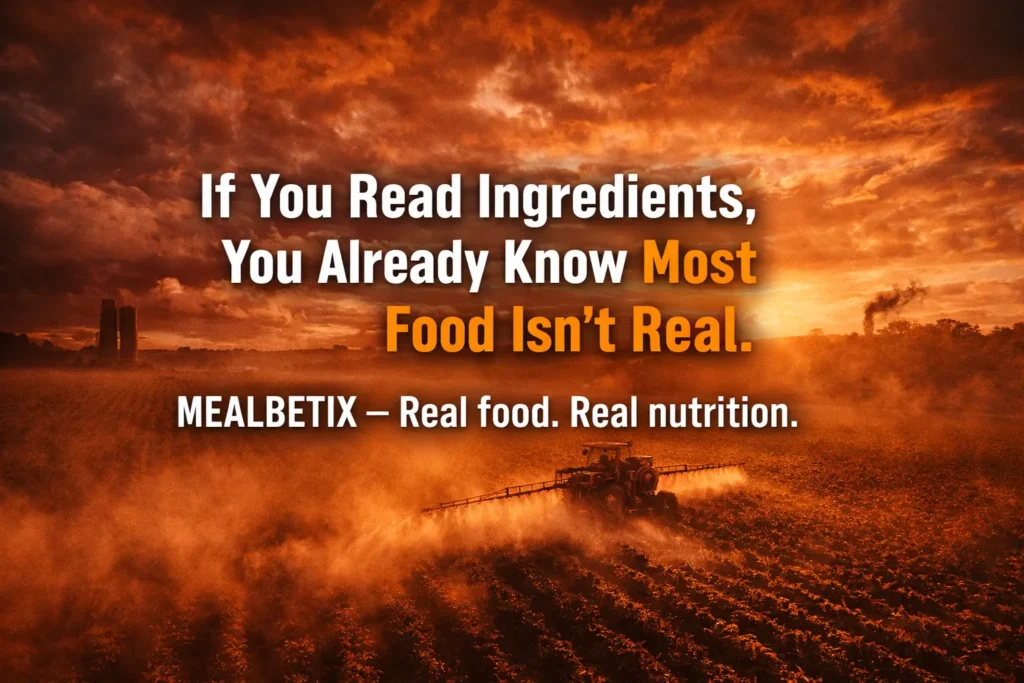In today’s world, you cannot ignore the rampant use of volatile poisons in agriculture, which spreads everywhere else of course, especially in North America, and among these thousands of poisons sprayed constantly, glyphosate stands out as one of the most widely used poison, so let’s discuss the Glyphosate Side Effects And What You Need to Know that can save your life.
Originally introduced by Monsanto in the 1970s under the brand name Roundup, glyphosate has since been adopted globally due to its effectiveness in killing weeds. However, this effectiveness comes at a terrible cost to our health and the environment. Understanding the glyphosate side effects is crucial for anyone looking to lead a much healthier lifestyle.
Glyphosate has been linked to a myriad of health issues. Studies have shown that prolonged exposure can lead to chronic illnesses, including cancer, kidney disease, and liver damage.
The World Health Organization (WHO) classified glyphosate as a ‘probable human carcinogen’ in 2015, highlighting the potential dangers it poses, and you know WHO never admits anything, so the fact that they said ‘probable…’ is like claiming it is absolutely true!
Moreover, glyphosate doesn’t just impact those directly exposed to it. Residues of this herbicide can be found in various foods and water sources, meaning that the general population is at risk of unintentional exposure. This underscores the importance of being vigilant about what we consume and the environments we inhabit.
Thankfully, adopting the The MealBetix Lifestyle can help you avoid every agriculture poison, especially glyphosate.
Understanding Glyphosate Exposure

Before delving into the specific side effects of glyphosate, it’s essential to understand how exposure to this herbicide occurs, or rather how you have already been exposed to it your whole life.
Glyphosate, the active ingredient in Roundup, was first synthesized in 1970 and introduced to the market as an herbicide in 1974 under the trade name Roundup.
- 1970: Glyphosate was synthesized by Monsanto chemists.
- 1971: Glyphosate was patented as an herbicide.
- 1974: Monsanto introduced Roundup, the first glyphosate-based herbicide, to the market.
- 1996: Monsanto began marketing genetically modified, glyphosate-tolerant crops, leading to a significant increase in glyphosate use.
Glyphosate is primarily used in agriculture to control weeds and enhance crop yields. However, its application is not limited to commercial farms; it is also commonly used in home gardens, parks, football fields, baseball fields, all other fields, and even along roadsides and event centers, in other words, anywhere you see vegetation throughout any city or town, you can absolutely assume all of it has been thoroughly sprayed already and is sprayed often.
This means you and everyone you know has already been poisoned, a lot, consistently, throughout your life.
One of the most concerning aspects of glyphosate is its persistence in the environment. Once applied, glyphosate can remain in the soil for years, during which time it will leach into water systems.
This means that even if you are not directly using glyphosate, you can still be exposed to it through contaminated drinking water or by consuming food from crops treated with the glyphosate, including all those so-called ‘conventional-turned-organic-farms’ that trick the masses into believing once they stop spraying after decades of spraying, will miraculously disappear from the environment and not contaminate their crops.
Moreover, countless studies have found glyphosate residue in a variety of everyday food items, including cereals, fruits, vegetables, nuts and even baby foods. This widespread contamination raises significant concerns, as it implies that this kind of exposure is not limited to any specific area or specific people, rather glyphosate exposure has already infiltrated everyone and everything, everywhere.
So the question isn’t if you will develop cancer from glyphosate exposure, rather when you will develop cancer from a lifetime of glyphosate exposure.
Occupational exposure is another critical factor to consider. Farmers, agricultural workers, and even gardeners who use glyphosate are exposed at higher concentrations than everyone else. But what’s even worse is these same agriculture workers go home after a long day of being exposed to concentrated amounts of glyphosate, only to expose their whole family to concentrated levels of glyphosate just by touching them or being in close proximity. Does anyone talk about this or warn agriculture workers that they will poison their own family every day when they get home, too?
Understanding these exposure pathways underscores the importance of seeking out clean, uncontaminated food options. The MealBetix Lifestyle offers a solution by providing 100% clean food options that are free from all harmful chemicals like glyphosate, ensuring both your health and your well-being, plus will detox every cell in your body that accumulated glyphosate or any pesticide or herbicide.
Health Risks Associated with Glyphosate
 As awareness about glyphosate side effects grows, so does the body of research linking this poison to various chronic diseases.
As awareness about glyphosate side effects grows, so does the body of research linking this poison to various chronic diseases.
One of the most alarming concerns is that it causes cancer! Yet even after countless studies clearly linking glyphosate exposure to cancer, glyphosate is still sprayed everywhere there is grass, bushes and trees. I wonder if the fact that glyphosate exposure brings billions of dollars of revenue to the cancer industry each year, the reason why glyphosate will not be banned here.
The International Agency for Research on Cancer (IARC), a part of the World Health Organization (WHO), also classified glyphosate as a “probably carcinogenic to humans”. (probably?)
This classification is based on evidence showing an association between glyphosate exposure and non-Hodgkin lymphoma.
Beyond cancer, glyphosate has been implicated in a range of other health issues. For instance, studies suggest that glyphosate can disrupt your endocrine system, which is responsible for hormone regulation. This disruption can lead to reproductive issues, developmental problems in children, and an increased risk of chronic diseases such as diabetes and obesity.
Furthermore, glyphosate has been found to adversely affect the gut microbiome. The gut microbiome is crucial for maintaining overall health, including immune system function and mental well-being.
An imbalance in gut bacteria caused by glyphosate exposure can lead to digestive issues, increased susceptibility to infections, and even mental health disorders like depression and anxiety.
There is also growing concern about glyphosate’s potential impact on kidney and liver health. Animal studies have shown that chronic exposure to glyphosate can lead to liver and kidney damage, raising questions about its safety for long-term human consumption.
Given these substantial health risks, it is imperative to remove your exposure to glyphosate, at least through your foods and drinks every day, which is why The MealBetix Lifestyle is vitally important for you and your whole family.
Environmental Impact of Glyphosate
The environmental impact of glyphosate is a growing concern among scientists and environmentalists alike. As one of the most widely used poisons globally, glyphosate’s pervasive presence in ecosystems cannot be ignored. One of the most significant issues is its effect on biodiversity.
Glyphosate is a non-selective herbicide, meaning it kills a wide range of plants, not just the targeted weeds. This can lead to a loss of plant diversity, which in turn affects the entire food chain, from insects to birds and mammals.
A particularly alarming consequence of glyphosate use is its impact on pollinators, such as bees and butterflies. These insects are crucial for pollinating many of the crops and wild plants that sustain ecosystems.
Studies have shown that glyphosate can harm pollinators both directly, by causing toxicity, and indirectly, by destroying the flowering plants they rely on for food. The decline in pollinator populations has far-reaching implications for agricultural productivity and biodiversity.
Glyphosate also contaminates water sources. When it rains, glyphosate residues can run off from agricultural fields into rivers, lakes, and groundwater. This contamination poisons all aquatic life, including fish and amphibians, which suffer from reduced growth, reproductive issues, and even mortality as a result of glyphosate exposure.
Soil health is another critical area affected by glyphosate, which alter the microbial communities in the soil, reducing its fertility and its ability to support healthy plant growth. Over time, this degradation of soil health leads to lower agricultural yields and increased reliance on chemical fertilizers, creating a vicious cycle of environmental harm.
How to Minimize Glyphosate Exposure
Minimizing glyphosate exposure is essential for maintaining your health and well-being, especially considering the widespread use of this herbicide in modern agriculture.
Now, you can certainly run to your local health food store and buy organic produce, but even certified organic produce has never been and will never be 100% glyphosate-free, yet they still make you pay extra for it!
I mean, claiming a food has “less poison”, still doesn’t actually make it healthy. So, if you’re ready to make this year the healthiest year of your life, join The MealBetix Lifestyle and be a part of The Clean Food Revolution, and change your food, and your health, forever!
 Dr Darren Wayne, aka The Food Guru, is probably the last Food Scientist left not on Big Food’s payroll, not on Big Pharma’s payroll and not on anyone’s payroll, which means he has no agenda, other than to tell you as much truth as possible, before it’s too late.
Dr Darren Wayne, aka The Food Guru, is probably the last Food Scientist left not on Big Food’s payroll, not on Big Pharma’s payroll and not on anyone’s payroll, which means he has no agenda, other than to tell you as much truth as possible, before it’s too late.




GMO is part of a conspiracy to own people. Hundreds of conventional farmers have been sued into oblivion by Monsanto claiming that the farmer not using their seeds and Roundup, have infringed on their patents by allowing the wind and insects to pollinate their conventional crops with patented pollen coming from their GMO neighbors crops. So legal precedents have been well established. Now millions of people have received patented mRNA gene altering jabs, so now legally those people are owned by the patent holder and are no longer owned by YHWH (our creator).
Wow! Amazing insight David.